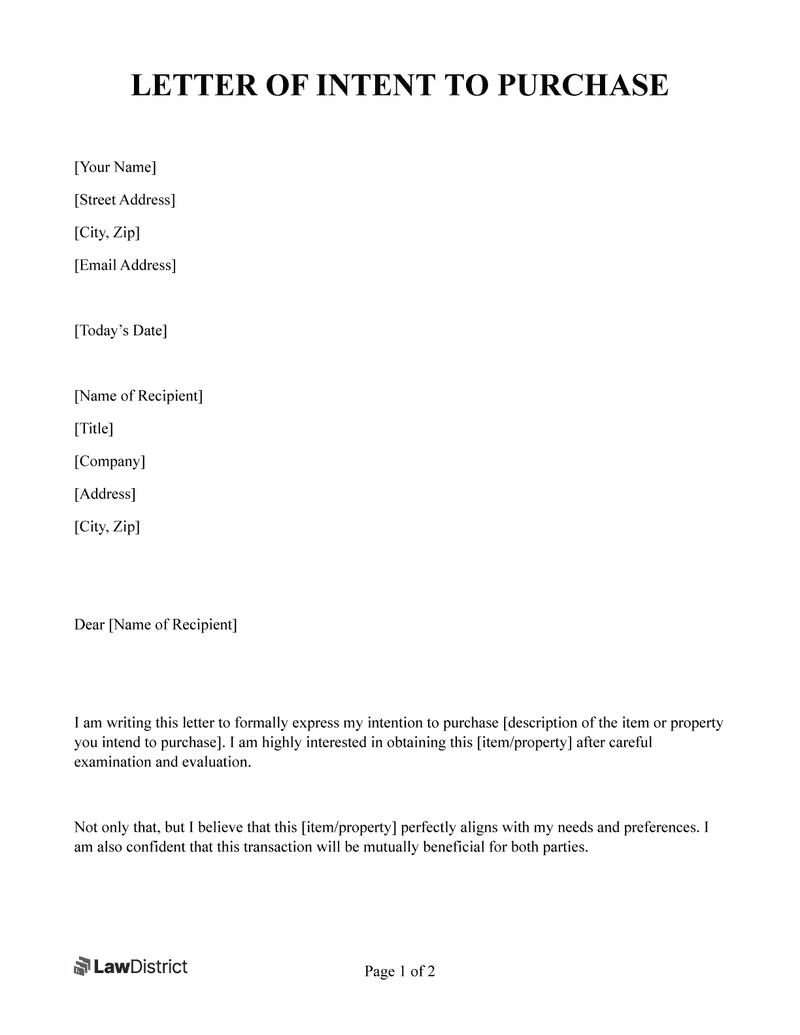Is a Letter of Intent to Purchase Binding?
A Letter of Intent to Purchase is generally not legally binding in terms of the transaction's completion. However, it can contain binding provisions, such as confidentiality and exclusivity clauses, which are enforceable.
The main body of the letter outlines the preliminary agreement and intentions of both parties, serving as a foundation for future negotiations rather than a definitive contract.
It's crucial to clearly state which parts are binding to avoid any legal confusion or unintended commitments.
